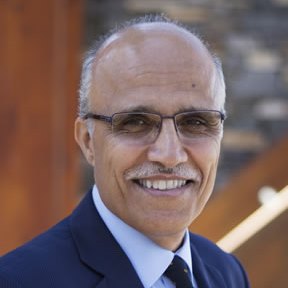New Urban Studies Director Redefines Community
As the new director of UW Tacoma's Urban Studies program, Ali Modarres is a passionate advocate for the community-engaged university.

Ali Modarres, the new director of UW Tacoma’s Urban Studies program, passionately believes in a particular role for universities: engagement with communities. Not just studying them, but constant, continual engagement.
“Universities should be positioned as the very public places that they are,” says Modarres, and should bring to the table all their resources to benefit the communities they serve.
His experience has shown the benefits of such engagement, and has pointed out the missing elements. “It seems to me we could do more,” he says.
He’ll have that opportunity as a new member of the faculty and the director of the urban studies program in Washington’s leading urban-serving university.
Modarres comes to UW Tacoma from California State University - Los Angeles, where he was the chair of the Department of Geosciences and Environment, professor of geography and urban analysis, and the associate director of the Edmund G. “Pat” Brown Institute of Public Affairs.
He received his bachelor’ and master’s degrees in landscape architecture, and then a Ph.D. in geography, all at the University of Arizona. He grew up in Iran, coming to the United States in 1978.
While completing his Ph.D., he worked as an environmental planner for the Arizona Department of Environmental Quality and later as a transportation analyst for the Pima Association of Governments in Tucson, Arizona.
Once on the geography faculty at Cal State LA, his research looked at racial and ethnic communities and their unequal access to urban services. He examined how state and local planning protocols were working for and against those communities: the unintended damage that well-meaning but monolithic policies was doing.
Modarres is a strong critic of the misuse of the word “community.” Frequently, land developers and urban planners will promise that their projects will create a community where supposedly none has existed, or strengthen one that is reported to be failing. “The promise of ‘communities’ yet-to-come must be particularly offensive to people who pre-date incoming developments,” writes Modarres.
His reappraisal of the idea of community has broadened to shine a light on the confused muddling of race and class in U.S. urban society, and probing the role of gender in the stratification of ethnic communities.
In 2011, Cal State LA honored Modarres with an Outstanding Professor Award. A student of his at the time commented, “He has a very energetic and fun teaching style.... He expects a lot from students, so be prepared to work hard for a good grade.”
UW Tacoma students will have a chance to experience Modarres as a teacher: he will be teaching courses in urban transportation and race and ethnicity in American cities. He also has an interest in the first-year core courses. There’s a strategy to his teaching plan: by getting in front of first-year students at the beginning of their college career, he can pitch them on becoming urban studies majors.
At home, Modarres relaxes by cooking. If the world is divided into dog people and cat people, Modarres is definitely in the latter camp, with two of the furry, enigmatic creatures. His wife will be an active part of campus: she’s scheduled to teach classes in comparative ethnic literature as a lecturer for Interdisciplinary Arts & Sciences. His youngest son is attending UW Tacoma as a student. His oldest son maintains the family’s connection to California - he is studying physics at University of California Santa Barbara.



